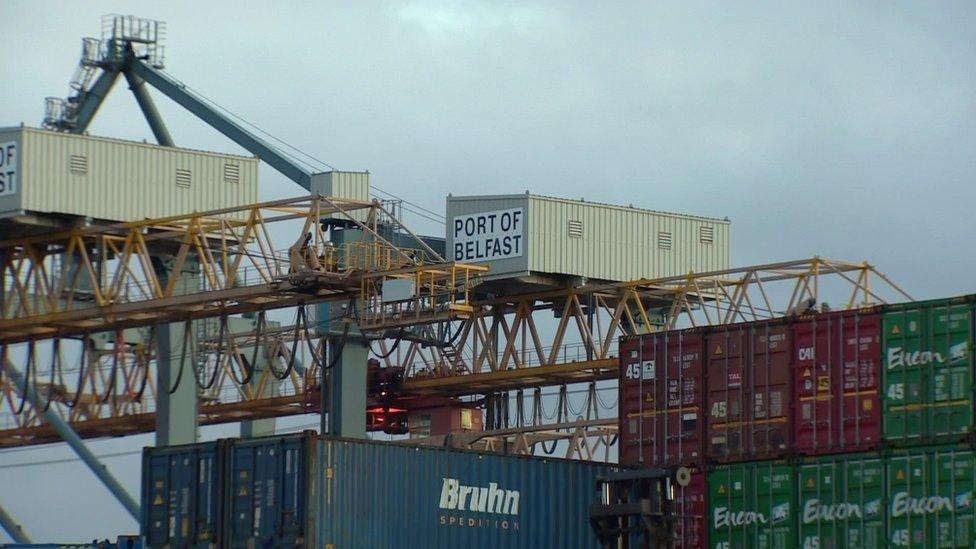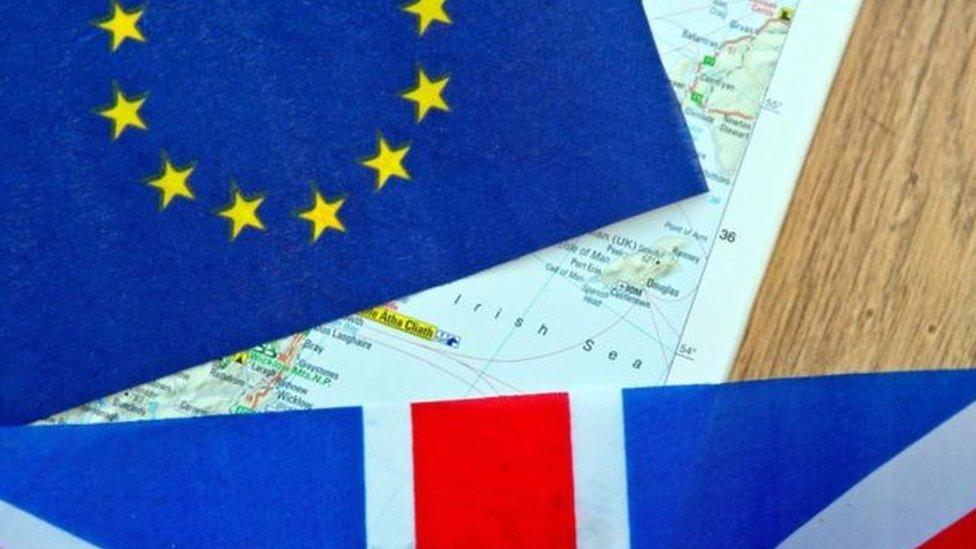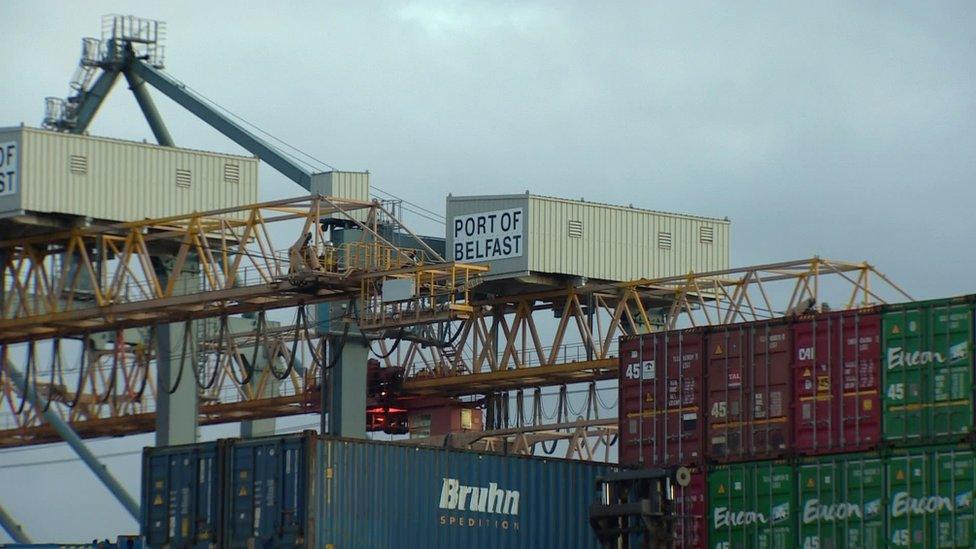Brexit: No border down Irish Sea, reiterates NI secretary
- Published

The Northern Ireland Secretary Brandon Lewis has said again there will not be a border down the Irish Sea.
It follows news the government has told the European Union it intends to enhance Border Control Posts at NI ports as part of the Brexit deal.
At the end of this year Northern Ireland will remain inside the EU single market for manufactured goods and agriculture products.
The rest of the UK will stop following these EU rules at the end of 2020.
Appearing remotely before Westminster's NI Affairs committee, Mr Lewis said there had been minimal checks on some goods since the 19th Century.
But he assured MPs Northern Ireland business would "remain a fluid part of the UK economy and the UK market and that won't change".
And he said "close to unfettered access" to the Great Britain market would remain.
On Wednesday, Junior Minister Declan Kearney told a Stomont committee the executive had been informed about the mover to enhance Border Control Posts on Monday.
A spokesman for the Cabinet Office said it had always been made clear that there will be "requirements for live animals and agri-food", building on what already happens at ports like Larne and Belfast.
"The protocol puts legal obligations on both sides. We are committed to complying with ours, just as we expect the EU to comply with theirs," he added.
Unfettered access 'paramount'
Mr Lewis told MPs: "Northern Ireland is part of the UK's single market. It is important it remains that way both ways and we are determined there will not be a border down the Irish Sea.
"The best way to achieve that is to have close to unfettered access both ways as we can possibly get and certainly unfettered access from Northern Ireland to Great Britain is absolutely paramount and key for us."
The EU has strict rules on the entry of animals and food products into the single market.
These products must always enter the single market through designed BCPs.
The secretary of state also said officials from the UK and Irish governments were working on ensuring the two countries' different Covid-19 tracing apps were compatible.
- Published3 February 2020
- Published4 March 2020

- Published25 February 2020

- Published13 May 2020
